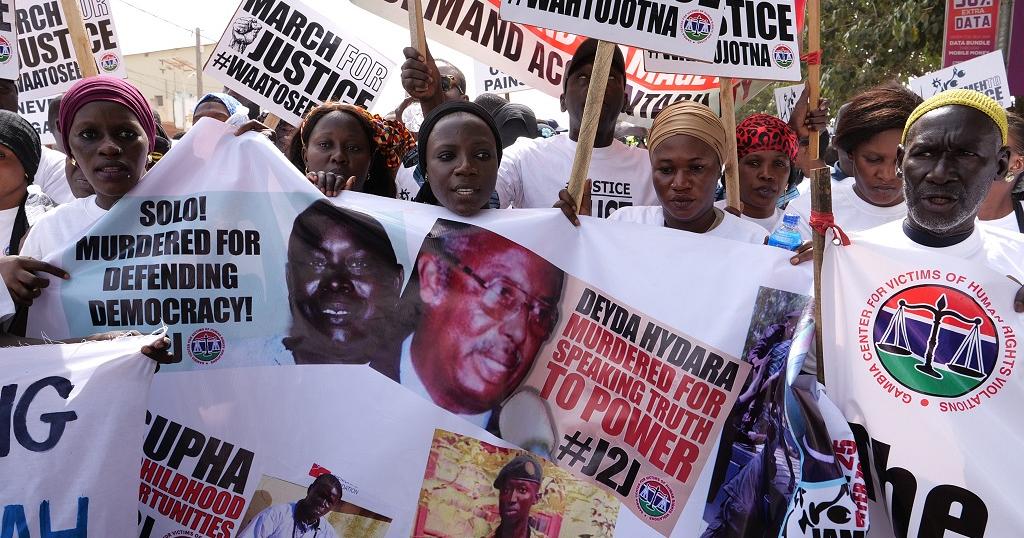
Forgiveness is one of the most beautiful acts that humans can heal and transform for practical virtues for building reconciliation and taking responsibility for our own mistakes; however, no moral agent is ever absolutely unforgivable, though many may be, for fundamental reasons, conditionally unforgivable.
Glad to see a televised case of forgiveness and reconciliation reminiscent of the South African truth commission of a policeman and a man’s widow who forgave the perpetrator.
Today’s Truth, Reconciliation and Reparations Commission (TRRC) in the Gambia former NIA perpetrators and some of their victims, particularly one Mr. Nasso and Mr. Sey, from Farafenni, have embraced the spirit of forgiveness and reconciliation emotionally, letting go of grudges and bitterness and forgiven Omar Cham. (NIA should also seek forgiveness from me, lol).
An apology is a lovely perfume; it can transform the clumsiest moment into a gracious gift. In South Africa, just after apartheid had been dismantled and Nelson Mandela had been made president, instead of seeking revenge, instead of punishing all those people who punished him, Nelson Mandela and Desmond Tutu established a truth and Reconciliation Commission.
Anyone who had done a crime could go to this Commission and confess what they had done. If they were truthful, no matter how horrendous their crimes, they would be given amnesty and forgiveness. It was a brilliant way of dealing with the past.
One of the truth commission’s moving events was a policeman recounting, in the presence of the man’s widow, how he had tortured and killed her husband, a black African activist from the ANC.
Can you imagine this scene? There was a woman whose husband had disappeared, probably in the middle of the night, and she suspected what had happened but did not know the real story.
Now she was facing a man who was confessing in detail how he had tortured and killed her husband, the father of her children, the man she loved. This white police officer was shaking and trembling as he recounted the details of what had happened.
At the end of his testimony, the widow rose from her seat and went towards him. The guards were supposed to stop her, but they froze. She went up to him, put her big black arms around him, hugged him, and said, “I forgive you.” Not just the two of them wept, but apparently, the whole room.
This sort of beautiful act is one of true forgiveness, reconciliation, and spirituality. Both the victim and the perpetrator would move on and become better people. They would learn real compassion, gain real wisdom, and find a truthful way of moving forward.
Now, if that woman could forgive the murderer of the man she loved, then each of us – if we put our minds to it – is capable of overlooking and ignoring anything.
NB: This write-up is an excerpt from a seminar lecture from a renounced British Theravada Buddhist monk Ajahn invited to my class as Guest Speaker: “Healing a nation on forgiveness, learning from our past”.
By Alagi Yorro Jallow











Recent Comments